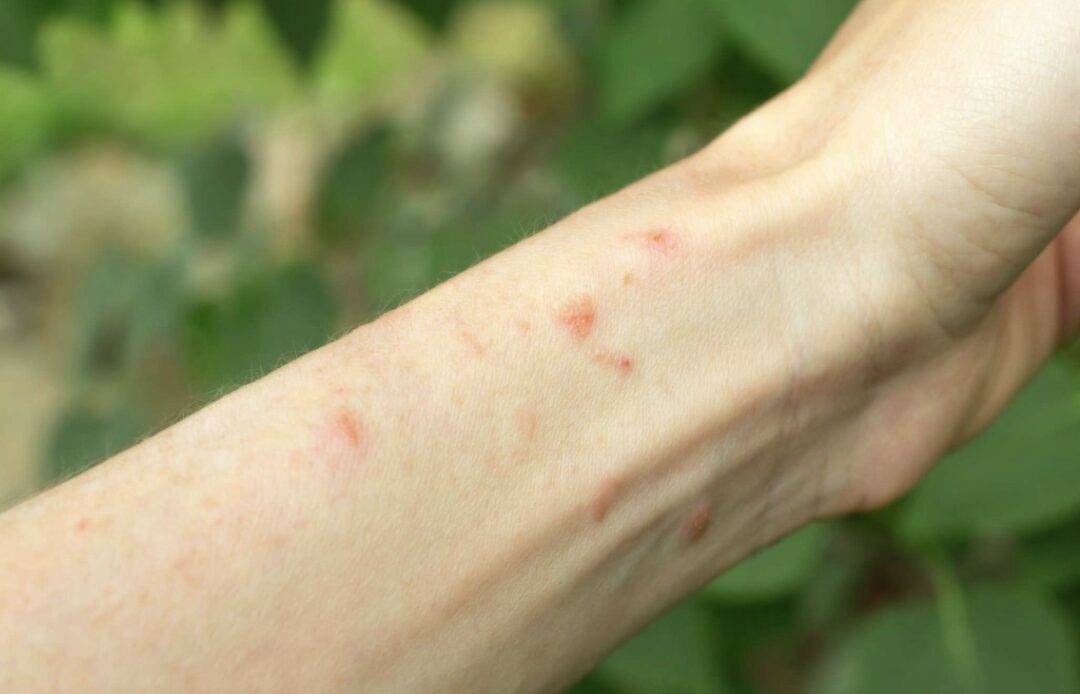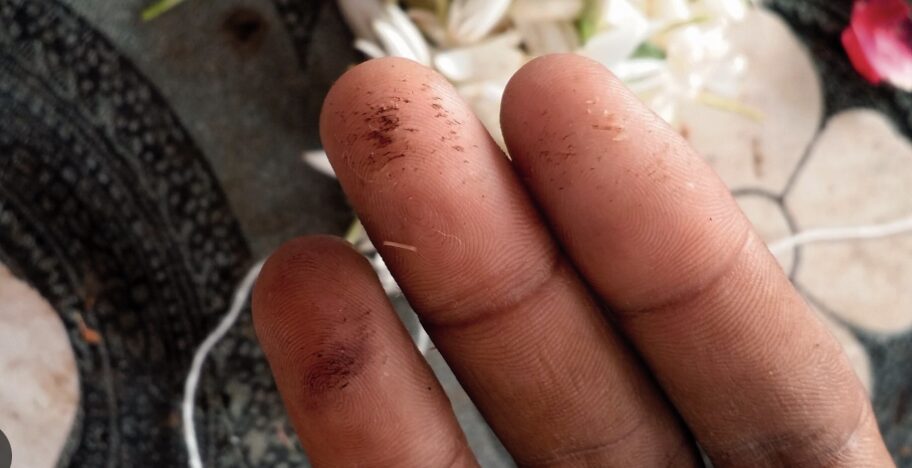This post may contain affiliate links which means Brenda Dintiman may receive a commission from purchases made through links. Brenda Dintiman will only recommend products that she has personally used. Learn more here: Privacy Policy
Can You Get a Rash From Your Garden Flowers and Vegetables?
Gardening can be a peaceful and fulfilling hobby, but it’s important to be aware that certain plants in your garden may cause skin reactions. Whether you’re handling flowers, vegetables, or even just the soil, it’s possible to develop a rash or irritation after contact with some plants.
Why Do Some Plants Cause Rashes?
Some plants contain chemicals or oils that can irritate the skin. These reactions usually fall into one of two categories:
- Contact Dermatitis: This is the most common type of skin irritation from plants. It happens when your skin comes in direct contact with a plant’s oils or chemicals, causing redness, itching, and sometimes blisters.
- Photodermatitis: This is a reaction that occurs when a plant’s sap or oils are on your skin, and then you go out in the sun. The combination of the sap and sunlight can trigger a rash or irritation.
- Allergic Reactions: Some people are allergic to specific proteins in plants, leading to more serious reactions like swelling or hives.
Common Garden Flowers That May Cause Rashes
- Tulips: Tulips are beautiful, but their bulbs and sap contain a substance called tulipalin A. This can cause a condition known as “tulip fingers“. A red, itchy rash on the hands, especially in florists or avid gardeners. People may experience redness, swelling, and itching on their hands or fingers.
- Marigolds: Marigold flowers, while lovely, contain a chemical called thiophene, which can irritate the skin. This is especially true if you’re handling the flowers in hot or sunny weather. Symptoms may include redness, itching, and even blisters in some cases.


Can Vegetables Cause Skin Reactions?
- Tomato Plants: Tomato leaves and stems have tiny hairs that can release irritants causing itchiness or rashes. This is more common in people with sensitive skin.
- Zucchini and Squash: The leaves of zucchini and squash plants can sometimes cause irritation because they contain cucurbitacins, a naturally bitter substance. This can cause mild rashes or irritation, particularly if the leaves are large or fuzzy.
How to Prevent Garden-Related Rashes:
- Wear protective clothing: Always wear gloves, long sleeves, and pants when working with plants that are known to cause rashes.
- Wash your hands and skin thoroughly: After handling plants, wash your hands and any exposed skin with soap and water to remove any plant oils or sap.
- Avoid touching your face: Try not to touch your face, especially your eyes or mouth, after gardening, as this can spread plant oils to sensitive areas.
- Use sunscreen: Some plant reactions can worsen when exposed to sunlight, so using sunscreen can help protect your skin from further irritation.
While a garden full of flowers and vegetables can bring beauty and joy, it’s important to be mindful of the plants that might cause skin reactions. By following a few simple precautions, like wearing gloves, washing your hands, and staying aware of the plants you’re handling, you can enjoy gardening without worrying about skin irritation.
If you want more helpful information, tips, and specials follow us on Instagram
Facebook and Youtube
Interested In Learning More About Your Skin? Explore More Of Our Blog Topics.
Sources:
- Mayo Clinic. (n.d.). Contact dermatitis. Retrieved from https://www.mayoclinic.org/diseases- conditions/contact-dermatitis/symptoms-causes/syc-20352742
- Healthline. (2020). Plants That Cause Hives. Retrieved fromhttps://www.healthline.com/health/skin/plants-that-cause-hives
American Academy of Dermatology. (n.d.). Prevent skin problems while gardening. Retrieved from https://www.aad.org/public/everyday-care/skin-care-secrets/routine/prevent-skin- problems-gardening
